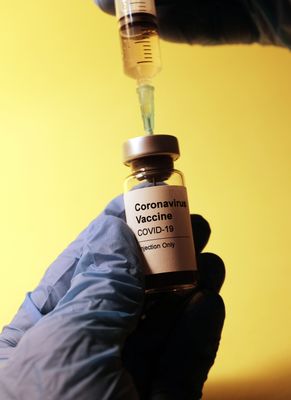Data Updates
| High-income country confirmed dose total: | 4.2 billion |
| Upper-middle-income country total: | 1.12 billion |
| Lower-middle-income country total: | 411 million |
| Low-income country total: | 270 million |
| COVAX total | 1.07 billion |
| Total worldwide confirmed purchases of Covid-19 vaccines: | 7.4 billion doses |
Weekly Insights and Interesting Trends
Author: Andrea Taylor
Direct deals by poorer countries are an important and encouraging development
This past week, we saw the first direct vaccine purchases made for low-income countries with the African Union’s purchase of 270 million doses of Covid-19 vaccines from Pfizer-BioNTech, OxfordAstraZeneca, and Johnson & Johnson (J&J). A relatively modest purchase of 270 million doses, when 7 billion doses have already been bought, might be overlooked but it actually represents a significant shift in the global power dynamics of the Covid-19 response.
COVAX, a partnership between Gavi, CEPI, and WHO, is the only mechanism we have to promote global equity to Covid-19 vaccines. With 190 countries participating, COVAX leverages its large market share to bulk buy vaccines and then allocates them equally among member countries, based on population. Lower-income countries will be provided vaccines to cover 20% of their population at no cost. The aim is to vaccinate high-priority and vulnerable populations worldwide on the same timescale, to protect healthcare systems and emergency services, and reduce mortality. We know that this approach to vaccination is better for everyone, both in terms of health and economic outcomes.
While COVAX is important and must succeed, we need to support additional, complementary mechanisms for low- and middle-income countries (LMICs) to get priority access to Covid-19 vaccines. Even with the 20% population coverage provided through Covax, LMICs will need another 40% to 50% population coverage to reach herd immunity levels. As our data show, however, most LMICs are nowhere near this goal. The African Union and Africa CDC have coordinated leadership across African countries to pool procurement and increase the purchasing power in the global vaccines market.
The timing of the African Union deal is at least as important as the quantity of doses: all 270 million doses are to be delivered in 2021, with 50 million doses delivered between April and June. African countries won’t have to wait at the back of the line to begin vaccination campaigns for their highest priority populations.
Also important is the selection of vaccines. Pfizer-BioNTech is the only Covid-19 vaccine that currently has WHO Emergency Use Listing (EUL) status, and the purchase by the African Union demonstrates that this isn’t just a vaccine for wealthy countries. As Dr. Ahmed Ogwell, Deputy Director of the Africa CDC stated, the capital cities will be able to store and administer Pfizer’s mRNA vaccine that requires ultracold storage. The Oxford-AstraZeneca vaccine has emergency approval in the UK (for the AstraZeneca- manufactured version) and is currently under review for WHO EUL status. The Serum Institute has committed to prioritize distribution to LMICs with the doses they manufacture. The J&J single-dose vaccine, with US emergency approval expected in February, will reduce both cost and burden of vaccination by eliminating the need for a second shot per person.
The purchase of 270 million vaccines as part of the whole-Africa approach represents an encouraging step towards global equity. Pooled procurement by LMIC leadership can increase leverage in the global market and should be encouraged and supported by global leaders and vaccine developers.
Interesting Trends
Significant updates, changes, and trends we are seeing this week:
- The first purchase by low-income countries was made through the African Union’s pooled procurement approach. A total of 270 million doses (50 million from Pfizer-BioNTech, 100 million from Oxford-AstraZeneca through Serum Institute, and 120 million from Johnson and Johnson) will be allocated to countries across Africa.
- The Indian government made its first official purchase, with 11 million doses of the OxfordAstraZeneca vaccine through Serum Institute, which were quickly rolled out through a mass immunization campaign.
- Switzerland and the EU granted emergency use approval for Moderna’s Covid-19 vaccine and the EU is currently reviewing an application by the Oxford-AstraZeneca vaccine, with a decision possible in late January.
- BioNTech increased its manufacturing goal from 1.3 billion to 2 billion doses in 2021. The scaleup is expected to cause temporary disruption in supply but the company expects capacity to increase by mid-February.
- Johnson and Johnson expects to submit final Phase III data to regulatory authorities within the next two weeks and plans to manufacture 1 billion doses in 2021.
- Brazil granted emergency use authorization to Sinovac’s Coronavac (despite disappointing results from the Phase III trial) and the Oxford-AstraZeneca vaccine, launching vaccinations moments after approval was granted. Turkey also granted emergency use authorization to Sinovac this week.
For more information on this research and our findings, please go to https://launchandscalefaster.org/COVID-19.

